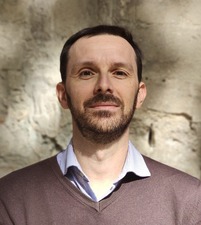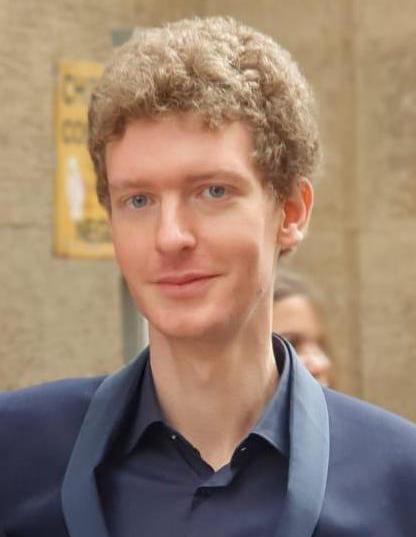Studying at the University of Verona
Here you can find information on the organisational aspects of the Programme, lecture timetables, learning activities and useful contact details for your time at the University, from enrolment to graduation.
Academic calendar
The academic calendar shows the deadlines and scheduled events that are relevant to students, teaching and technical-administrative staff of the University. Public holidays and University closures are also indicated. The academic year normally begins on 1 October each year and ends on 30 September of the following year.
Course calendar
The Academic Calendar sets out the degree programme lecture and exam timetables, as well as the relevant university closure dates..
| Period | From | To |
|---|---|---|
| Sem. 1A | Sep 25, 2023 | Nov 4, 2023 |
| Sem. 1B | Nov 13, 2023 | Dec 22, 2023 |
| Sem. 2A | Feb 19, 2024 | Mar 29, 2024 |
| Sem. 2B | Apr 9, 2024 | May 31, 2024 |
| Session | From | To |
|---|---|---|
| Sessione d'esame invernale | Jan 8, 2024 | Feb 17, 2024 |
| Sessione d'esame estiva | Jun 3, 2024 | Jul 27, 2024 |
| Sessione d'esame autunnale | Aug 26, 2024 | Sep 21, 2024 |
| Session | From | To |
|---|---|---|
| Sessione estiva | Jul 8, 2024 | Jul 13, 2024 |
| Sessione autunnale | Nov 4, 2024 | Nov 9, 2024 |
| Period | From | To |
|---|---|---|
| Festa di Ognissanti | Nov 1, 2023 | Nov 1, 2023 |
| Festa dell'Immacolata | Dec 8, 2023 | Dec 8, 2023 |
| Vacanze di Natale | Dec 23, 2023 | Jan 6, 2024 |
| Vacanze di Pasqua | Mar 30, 2024 | Apr 1, 2024 |
| Festa della Liberazione | Apr 25, 2024 | Apr 25, 2024 |
| Festa del Lavoro | May 1, 2024 | May 1, 2024 |
| Festa del Patrono S. Zeno | May 21, 2024 | May 21, 2024 |
| Festa della Repubblica | Jun 2, 2024 | Jun 2, 2024 |
| Vacanze estive | Aug 12, 2024 | Aug 17, 2024 |
Exam calendar
Exam dates and rounds are managed by the relevant Humanistic Studies Teaching and Student Services Unit.
To view all the exam sessions available, please use the Exam dashboard on ESSE3.
If you forgot your login details or have problems logging in, please contact the relevant IT HelpDesk, or check the login details recovery web page.
Should you have any doubts or questions, please check the Enrollment FAQs
Academic staff
 evita.calabrese@univr.it
evita.calabrese@univr.it
 sofia.piacentin@univr.it
sofia.piacentin@univr.it
 pieralberto.porcedducilione@univr.it; pierre_pordd@yahoo.it
pieralberto.porcedducilione@univr.it; pierre_pordd@yahoo.it
 045 8028732
045 8028732
Study Plan
The Study Plan includes all modules, teaching and learning activities that each student will need to undertake during their time at the University.
Please select your Study Plan based on your enrollment year.
1° Year
| Modules | Credits | TAF | SSD |
|---|
Further activities2° Year It will be activated in the A.Y. 2024/2025
| Modules | Credits | TAF | SSD |
|---|
1 module between the following1 module between the following3 modules among the following3° Year It will be activated in the A.Y. 2025/2026
| Modules | Credits | TAF | SSD |
|---|
3 modules among the following| Modules | Credits | TAF | SSD |
|---|
Further activities| Modules | Credits | TAF | SSD |
|---|
1 module between the following1 module between the following3 modules among the following| Modules | Credits | TAF | SSD |
|---|
3 modules among the following| Modules | Credits | TAF | SSD |
|---|
2 modules among the following3 modules among the following
Legend | Type of training activity (TTA)
TAF (Type of Educational Activity) All courses and activities are classified into different types of educational activities, indicated by a letter.
History of Medieval Philosophy (2024/2025)
Teaching code
4S003226
Teacher
Not yet assigned
Credits
6
Language
Italian
Scientific Disciplinary Sector (SSD)
M-FIL/08 - HISTORY OF MEDIEVAL PHILOSOPHY
Period
Sem. 2B dal Mar 31, 2025 al Jun 1, 2025.
Courses Single
Authorized
Learning objectives
History of Medieval Philosophy
Medieval philosophy spans from late Antiquity to the raise of Humanism (4th century aD-14th century), involving the whole Euro-Mediterranean region, and articulating in for languages: Latin, Greek, Arabic, and Hebrew. The course provides students with in-depth knowledge of the concepts, the schools, and the main thinkers of the philosophy of the Middle Ages, the latter always considered within the wider context of Western though. Students are expected:
KNOWLEDGE:
1. To acquire knowledge of a given range of subjects, texts, and authors, belonging to medieval philosophy, the latter seen as part of the wider context of Western though.
2. By means of the knowledge acquired at point 1, to reach a wider knowledge of the main conceptual lines of Western philosophical tradition.
ABILITIES:
1. To approach medieval philosophical texts (read in translations, but always referring them to the original Latin versions) in a scientifically sound way, showing the ability to use correct historical-critical and hermeneutical approaches, and properly using a correct philosophical terminology;
2. To autonomously formulate critically-founded assessments on the subjects analyzed during the course.
3. To use present-day sources and research tools (paper-supported and/or online archives, data banks, online catalogues), also in view of learning how to properly write an academic-style essay and/or the final dissertation.
4. To develop their capacity communicate philosophical contents to specialists and non-specialists alike;
5. To develop their capacity to continue their studies at a MA level.
Type D and Type F activities
SOFT SKILLS
Find out more about the Soft Skills courses for Univr students provided by the University's Teaching and Learning Centre: https://talc.univr.it/it/competenze-trasversali
CONTAMINATION LAB
The Contamination Lab Verona (CLab Verona) is an experiential course with modules on innovation and enterprise culture that offers the opportunity to work in teams with students from all areas to solve challenges set by companies and organisations.
Upon completion of a CLab, students will be entitled to receive 6 CFU (D- or F-type credits).
Find out more: https://www.univr.it/clabverona
PLEASE NOTE: In order to be admitted to any teaching activities, including those of your choice, you must be enrolled in the academic year in which the activities in question are offered. Students who are about to graduate in the December and April sessions are therefore advised NOT to undertake extracurricular activities in the new academic year in which they are not enrolled, as these graduation sessions are valid for students enrolled in the previous academic year. Therefore, students who undertake an activity in an academic year in which they are not enrolled will not be granted CFU credits.
| years | Modules | TAF | Teacher |
|---|---|---|---|
| 1° 2° 3° | Ciclo tematico di conferenze – sulla "leadership femminile": dati, riflessioni ed esperienze | D |
Paola Dal Toso
(Coordinator)
|
| 1° 2° 3° | Ten years of dreams, lapsus, missed acts". Ten years anniversary of 'TIRESIA', Research Centre for Philosophy and Psychoanalysis | D |
Matteo Bonazzi
(Coordinator)
|
| 1° 2° 3° | Invisible plots in contemporary reality | D |
Rosanna Cima
(Coordinator)
|
| 1° 2° 3° | University and DSA - Methods and strategies for tackling study and university studies | D |
Gianluca Solla
(Coordinator)
|
| years | Modules | TAF | Teacher | |
|---|---|---|---|---|
| 1° 2° | Gnoseology and Metaphysics Workshop | D |
Davide Poggi
(Coordinator)
|
|
| 1° 2° 3° | Cities and Freedom | D |
Giacomo Mormino
(Coordinator)
|
|
| 1° 2° 3° | Ten years of dreams, lapsus, missed acts". Ten years anniversary of 'TIRESIA', Research Centre for Philosophy and Psychoanalysis | D |
Matteo Bonazzi
(Coordinator)
|
|
| 1° 2° 3° | Education and affectivity - 200 years after Christian education by Antonio Rosmini | D |
Fernando Bellelli
(Coordinator)
|
|
| 1° 2° 3° | IV Reading seminar of classical texts | D |
Alessandro Stavru
(Coordinator)
|
|
| 1° 2° 3° | IV Reading seminar of classical texts | D |
Alessandro Stavru
(Coordinator)
|
|
| 1° 2° 3° | IV Reading seminar of classical texts | D |
Alessandro Stavru
(Coordinator)
|
|
| 1° 2° 3° | Nietzsche, tragedy, the tragic | D |
Alessandro Stavru
(Coordinator)
|
|
| years | Modules | TAF | Teacher | |
|---|---|---|---|---|
| 1° 2° | Gnoseology and Metaphysics Workshop | D |
Davide Poggi
(Coordinator)
|
|
| 1° 2° 3° | Cities and Freedom | D |
Giacomo Mormino
(Coordinator)
|
|
| 1° 2° 3° | Legal clinics | D |
Alessia Maria Aurora Bevilacqua
(Coordinator)
|
|
| 1° 2° 3° | Ten years of dreams, lapsus, missed acts". Ten years anniversary of 'TIRESIA', Research Centre for Philosophy and Psychoanalysis | D |
Matteo Bonazzi
(Coordinator)
|
|
| 1° 2° 3° | Philosophy and politics of care | D |
Alessia Maria Aurora Bevilacqua
(Coordinator)
|
|
| 1° 2° 3° | Tai-Ti aiuto io | D |
Alessandra Cordiano
(Coordinator)
|
|
| 1° 2° 3° | Verso le elezioni europee 2024 | D |
Massimo Prearo
(Coordinator)
|
|
Career prospects
Module/Programme news
News for students
There you will find information, resources and services useful during your time at the University (Student’s exam record, your study plan on ESSE3, Distance Learning courses, university email account, office forms, administrative procedures, etc.). You can log into MyUnivr with your GIA login details: only in this way will you be able to receive notification of all the notices from your teachers and your secretariat via email and soon also via the Univr app.
Student mentoring
Linguistic training CLA
Gestione carriere
Practical information for students
Documents
| Title | Info File |
|---|---|
|
|
pdf, it, 325 KB, 02/05/23 |
|
|
pdf, it, 212 KB, 02/05/23 |
|
|
pdf, it, 131 KB, 02/05/23 |
Graduation
Documents
| Title | Info File |
|---|---|
|
|
pdf, it, 99 KB, 13/10/23 |
|
|
pdf, it, 101 KB, 10/04/24 |
































